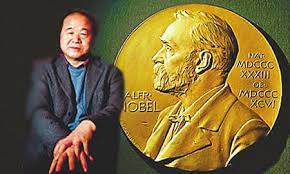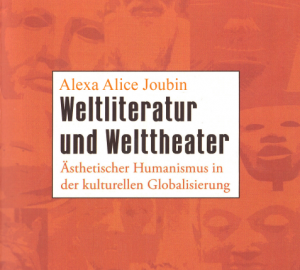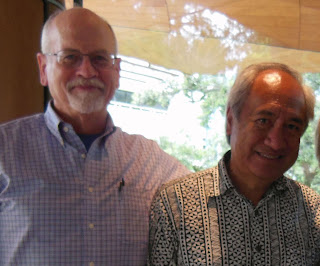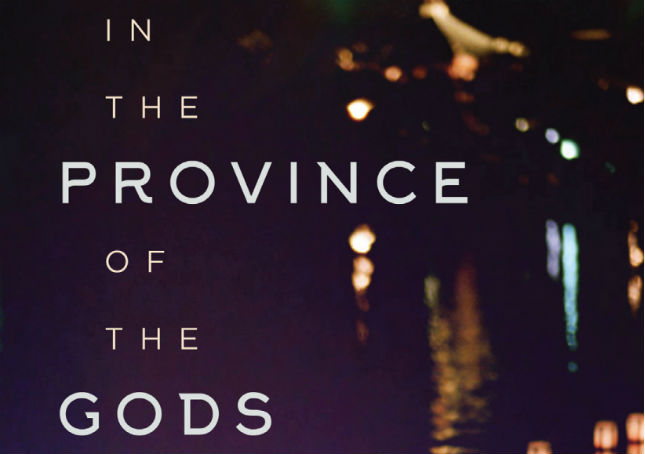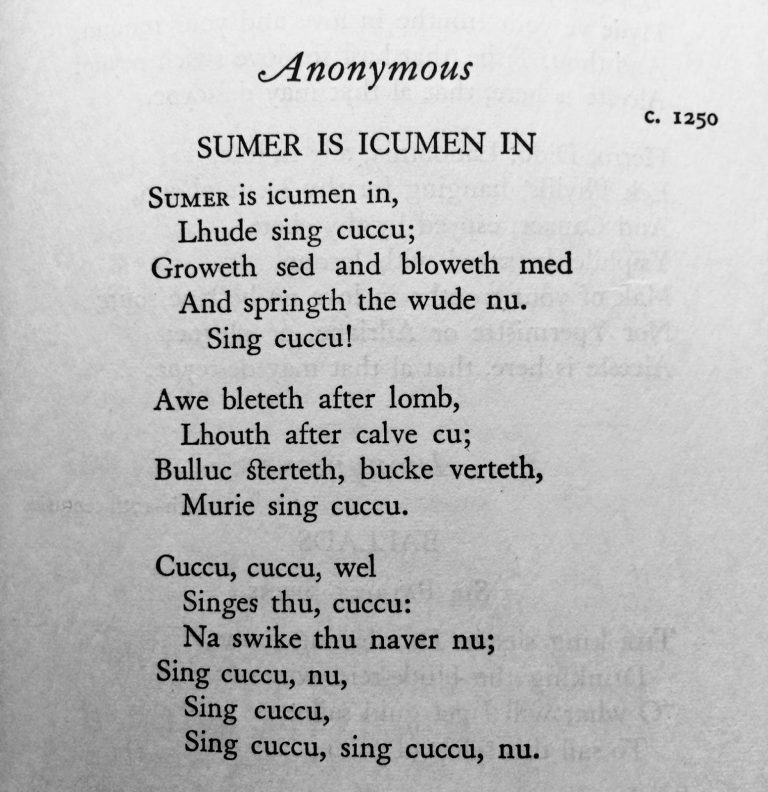The 2012 Nobel Prize in Literature
October can be an interesting time for literature professors writing about contemporary novelists, because the Swedish Academy announces the Nobel Prize in Literature during this time, changing the fate of little-known masters overnight or causing controversies around acclaimed authors to arise. Many English departments offer courses on world literature and Nobel laureates. This year’s Nobel Prize in Literature went to Chinese novelist Mo Yan (1955 — ). Mo Yan is the pen name (meaning abstinence from speech) of Guan Moye who began his career as a peasant in China’s Shandong province. Mo Yan’s styles range from magic realism, with a healthy dose of Gabriel Garcia Marquez, to black humor and bawdy fable.
In her new book Weltliteratur und Welttheater: Ästhetischer Humanismus in der kulturellen Globalisierung (World Literature and World Theatre: Aesthetic Humanism in Cultural Globalization, published in 2012, Alexa Alice Joubin wrote about Mo Yan, Gao Xingjian (winner of the 2000 Nobel Prize in Literature), and the role of the Western canon, notably Shakespeare, in the aesthetics of several other writers and directors. The 2012 Nobel Prize in Literature was widely seen by Western media as a sign that the Nobel committee is warming up to China, a rising power. The 2010 Nobel Peace Prize, awarded to jailed dissident Liu Xiaobo, infuriated China, and the 2000 Nobel Prize in Literature, awarded to Chinese-French author Gao Xingjian, was “disowned” by the Chinese government due to Gao’s politics.The 2012 Nobel Prize in Literature was widely seen by Western media as a sign that the Nobel committee is warming up to China, a rising power. However, there is always another side of the story.
During a recent interview with Voice of America, Alexa argued that the 2012 Nobel Prize in Literature signals the beginning of Western recognition of a “third world” writer who does not slot into tired definitions of “dissidents.” Stories of oppression must be known, but other cultural stories must also be told–in creative ways as has been done by Mo Yan. Headlines about China converge on the notion that politics dictate cultural life, a notion that leads to routine praise and the expectation of dissident, subversive, or political undertones in “third world literature.” Fredric Jameson suggests in his widely cited essay “Third-World Literature in the Era of Multinational Capitalism” that arts and literature from the developing world tend to operate as national allegory.The tendency to gravitate toward literature as “national allegory” can be a problem. Mo Yan’s social criticism is more subtle. The Nobel Literature Committee may be signaling an important shift in how world literature can be viewed. For good reasons, some Western critics are more interested in the output by the so-called dissidents. They are less interested in art for art’s sake. In Mo Yan’s humorist, satirical and humorist narratives about his society we see a different face of art and literature from that part of the world.Mo Yan has been at the center of some of the most significant literary events of his time. The meanings of the 2012 Nobel Prize in Literature are diverse, and the full picture is still emerging. Mo Yan’s pen name, signaling a vow to “abstain from speech,” contains a healthy dose of humor because he is one of the most prolific writers of our times. This claim to silence may be seen as a gesture of self-mockery, but it is also a tool to speak the unspeakable, and humor commits the invisible to writing.The citation for the Nobel Prize highlights fantastical realism as Mo Yan’s primary contribution to world literature, rather than his political stance. Predisposed toward the political values of literature, China watchers in the West often do not have patience for or interest in the artistic merits of China’s literary output and soft power. Mo Yan’s 2012 and Gao Xingjian’s 2000 Nobel Prizes are the first step toward a more balanced view of the world beyond political headlines.

